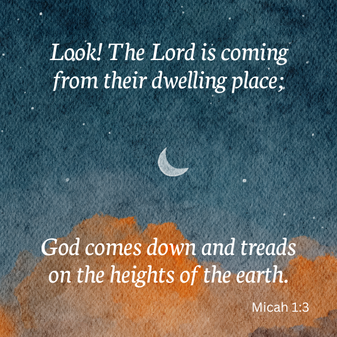 In technology, the 1.0 release sounds like the first iteration, but often it is really the release of a product at the deadline, whether or not is done. The new idea is offered to the public and the users report back their experience: what works and what does not. This may or may not be a good idea in technology, you want the app you paid for to work, right? But I'm beginning to think that it is a great idea for church. Too often we spend our time trying to perfect a new idea before we've even gotten input as to whether others want what we have to offer. Why not get started, and then find out from the users what should be different? Let them tell us, and let us listen, to what works and what doesn't, and make adjustments accordingly. Why do we presume that we know all of what others want from this new program we are creating? If it is meant to serve others (and I hope what we are doing is meant to serve others) then we need to know what those "others" are looking for. "They" probably know more about their needs than we do. We should be involving others in all of the new programs we are creating, but it seems good to also go ahead and release some of our great ideas into the wild. Lets get started, and then get feedback, and make changes. In fact, wouldn't it be cool if the church always was version 1.0? What would it mean if we assumed that changes are needed, fixes are required, that the whole church organization would benefit from being renovated? We say this sometimes, but usually not until our structures are so entrenched it would be destructive to make even small changes. Church 1.0 would be open to constant adjustment. What if tweaking is forever? It is popular in the church circles I hang with, to talk about the future of church as church 2.0. Someone will invariably reply, no we should get to 3.0. The idea they are trying to express is that we need completely new forms of church for this time and place. This is true. But do churchy folk have any idea how old version 3.0 is? Most computer programs are long past version 2 or 3. It makes me think of the pastor who talked about covid bringing churches into the twentieth century. It was great that we finally learned how to use (some) technology, but the rest of the world is already in the twenty-first century. Church 2.0 was created in the year 300. We should surely be up to version 10, or 28, or 593 by now? Right? Instead of looking for the right version of updated church we should be, what if we imagined church that is never finished. What if we asked what need to change every time a new person walks in the door, and again every time a person leaves. What if we changed when the neighborhood changes? What if we spoke the language of our neighbors, of young people, of the newest ideas of our culture? To be church 1.0, to be a beta version of church, we have to be trying something new. For small churches, one new thing at a time, but certainly one and then another. When we start a new dinner, or pantry, or moving ministry, or education series, or community conversations, whatever new ministry, we should start it with the idea that we don't know yet what it should look like. Get started! And then meet the people who come and ask them how it should be changed. Change it up next week with the fixes offered by those present. Heck, ask those attending to come and help with the fixes. Ask what should be for dinner, and are you meeting at the right time, and should the tables be set up like this, or like that. Is the serving line in the right order? Are you advertising in the right places? Assume all your planning is just to find the starting point. Most of it will need to change. And then change it! Church 1.0 has some foundational beliefs--that everyone is loved by God--and some foundational practices--we listen for Christ's good news in our lives. Everything else can be changed. Here are some things you might change: Sunday worship. Hymns. Organ and Piano. Choir. What music the choir sings. Sunday school. Coffee hour. Council meetings! The treasurer's report. When you gather, how you gather. Welcome to church 1.0. Open for editing.
0 Comments
 Small churches, or, as I describe the churches I serve, micro-churches end up spending a lot of time thinking about what it means to be church. Many of the things we grew up with--Sunday School, Choir, crowded holiday services, a pastor (or two!) at every service--are no longer options for some churches. The advantage of those changes is that we spend time asking ourselves "what is church?" And so we list some important traits of church: that it is relational, missional, focused on Jesus Christ, that it is communal, and gathers in a sacred space, it is spirit filled, it is incarnational, it is eucharistic. Not all congregations will choose all of those words, and many congregations add other descriptors. My ordination is with the Christian Church (Disciples of Christ), and I went to an Episcopal seminary; for me church is definitely Eucharistic. We are a group of people that gather around a ritualistic meal. There are many challenges for a small, eucharistic church, and one of them is how to share our meal when we have limited resources. Our recent COVID years with online church further challenged our experience of Eucharist. And so churches are wresting. If you do not have a priest, and are not having Eucharist, is the gathered community no longer church? How often do you need to have Eucharist to be church? Can the Eucharist be in the form of the reserved sacrament from another parish? Can the person who blesses the sacrament be visiting clergy, and if so, what does that do to the definition of church as "relational"? Can the elements be blessed through the miracle and zeroes and ones of Zoom? Are bagels and coffee appropriate substitutes for bread and the fruit of the vine? There is a no single right answer to these questions, but it is right, and necessary for small parishes to have discuss them, and to decide what is the right answer for their diocese, their geographical location, and for their local community. What small and micro-congregations need are creative alternatives. In one of my congregations, I bless the elements in one town while they watch, together, in the sanctuary, on zoom, and then we eat, remotely, together. In another, once a month they have breakfast church with a discussion sermon. One of the lay leaders has been authorized by the council to bless the sacrament--usually some sort of coffee cake and orange juice or coffee. In Episcopal churches sometimes a lay person trained and ordained, so that their home congregations can share the Eucharist. In others an ordained Missioner rotates among several churches, so that once every three, or five, or eight weeks, each congregation gets their turn with the Eucharist. Yoked parishes often have the pastor visiting several churches on Sunday morning. Merged parishes may switch between which building they use. My two parishes gather out-of-doors for a combined Easter in the lovely (but cold) Cathedral of the Pines. Dinner churches bless the elements, but share an actual meal. All of these are strategies for solving the problem of Eucharist, but the most important element is the discussion. What is church? What does the Eucharist mean to your congregation? How often will you have it, and how will we make that happen. Small and micro-congregations grow stronger when the have wrestled with their theology in order to make a theological decision about what it means to be a Eucharistic people.  We did a Micah Study at Worcester Fellowship. Yesterday we were looking at chapter one. Micah is a prophet writing to his community about hope and about doom. We asked about each chapter: is this hope or is it doom? Chapter one? Clearly DOOM. Wow, Micah is predicting suffering and loss for everyone. What a bright and cheery advent message! We went over some of the setting and noted how similar those times were to today: that the rich have the money and the power, their sense of satisfaction and righteousness. That the poor have, well, the poor have nothing. They have dissatisfaction and hopelessness. The poor have peace, and religion, and family, and friends, but the rich don't seem to notice that the poor have no way to get ahead, no work, no supports, not enough food, not enough housing. Micah's message is addressed to those in power: your doom is coming. For the wealthy: doom is coming; for the poor: doom is now. But Bible study at Worcester Fellowship isn't really about tussling with the setting or about understanding the goals of a prophet, and it really isn't about the predicted destruction of Jerusalem. We explored the question: "have you ever felt a sense of doom?" First we talked about Korea and nuclear war and terrorists. The middle east, Ukraine, Sudan. Brian wants to go into the Navy and he's concerned the Navy will be involved in one of these wars . Mark lives with the challenges of paranoia and has to check every floor of his building every evening before he can sleep because of all the news about the threat of terrorists. He describes how media reinforces his fears, even as he knows that his building in Worcester isn't a likely target. Alison worries about her son who in Basic Training. Estella shared about the violence in her home after father returned from the war Korea. Sandy mentioned how hard it is to have the nights getting longer and longer. Alison described her struggle with depression, Ron how his regular seizures are stealing more and more of his brain. Juan said that his biggest sense of doom comes from his addictions. There was instant agreement with the doom of addiction and many examples. How you try so hard for days and days and then one day you are late for the food pantry so you don't have food and you get a few bucks and you have another drink. How you try to stay in the house to stay away from others who are using and your mind gets more and more convoluted as you get more and more isolated and you just want to die. How you go to meetings and church and bible study and see your social worker and then your therapist, but then there it is, 2 am and you are awake and you can't remember any of the reasons why you were trying to get sober. And how a long night is followed by waking up in the morning afraid that you won't make it another day. Brian asked "what is that saying... you know about if you do and if you don't?" Alison replied quickly "doomed if you do, doomed if you don't." Mark was sure that wasn't right "No, its damned if you do, damned if you don't. Excuse me pastor, sorry." After a moment of silence Estella summarized the study. "I think Micah would say Doomed if you do, doomed if you don't." (Originally from Advent, 2010, but edited to fit today.) |
My ThoughtsFor my organized thoughts, see my book Five Loaves, Two Fish, Twelve Volunteers: Developing Relational Food Ministries. In this spot are thoughts that appear for a moment--about food programs, mission, church, building community, writing, and whatever else pops into my head. History
January 2024
Categories
All
|
 RSS Feed
RSS Feed